Club History
The club that became West Bromwich Albion was formed in 1878 by a group of young workers at the George Salter Springs factory, appropriate for a club whose terrace celebration would more than a century later become "boing boing".
Legend has it that the paucity of sporting retailers in their home town forced these early pioneers to walk to neighbouring Wednesbury to buy a ball, thereby becoming West Bromwich Strollers before taking on the Albion mantle.
Just eight years after forming, in 1886 we became the first team from the Midlands to reach an FA Cup final, losing in a replay to Blackburn Rovers.
The following year, we lost the final to Aston Villa, but it was third time lucky in 1888 when we defeated Preston North End 2-1 to claim the trophy.
Albion then took on Scottish Cup winners Renton, in a game billed as having at stake the 'Championship of the World', losing 4-1 amid a thunderstorm.
Albion were among the inaugural 12 members of the Football League in 1888, winning our first game, 2-0 at Stoke's Victoria Ground.
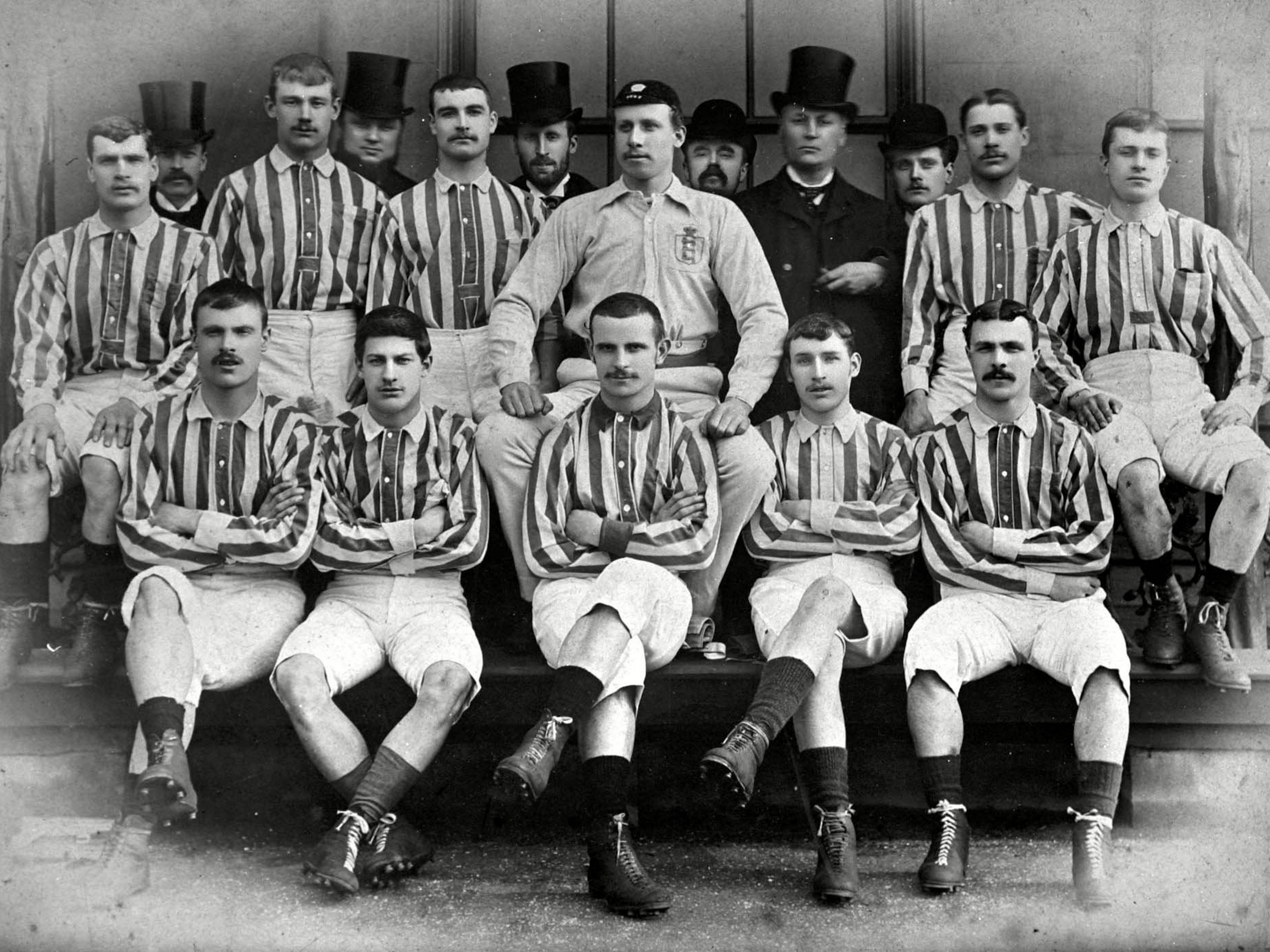
In 1892, we posted what remains the biggest ever win in the top flight, beating Darwen 12-0, a divisional record that we share with Nottingham Forest. Albion also went on to win our second FA Cup that year, defeating Villa 3-0. A fifth FA Cup final came in 1895, but this time Villa prevailed, 1-0.
After a nomadic early existence that saw the club playing at a number of venues, most famously Stoney Lane, Albion moved to The Hawthorns in 1900 and then reached FA Cup final number six in 1912, losing to Barnsley after a replay.
Following football's return after the Great War in 1919/20, Albion won Division One, posting a then record 60 points and 104 goals, going on to beat Tottenham Hotspur 2-0 at White Hart Lane to win the Charity Shield.
In 1925, Albion were First Division runners-up to Huddersfield but two years later were relegated, paradoxically setting the scene for the club's greatest success when, in 1930/31, we became the only club ever to win promotion and the FA Cup in the same season.
This is a still unique double, the Throstles beating Birmingham 2-1 in the FA Cup final, the club's first appearance at Wembley Stadium, then going on to clinch promotion the following week by defeating Stoke and Charlton inside three days.
So celebrated was our achievement that the Prince of Wales himself undertook a pilgrimage to West Bromwich to meet these double diamonds.
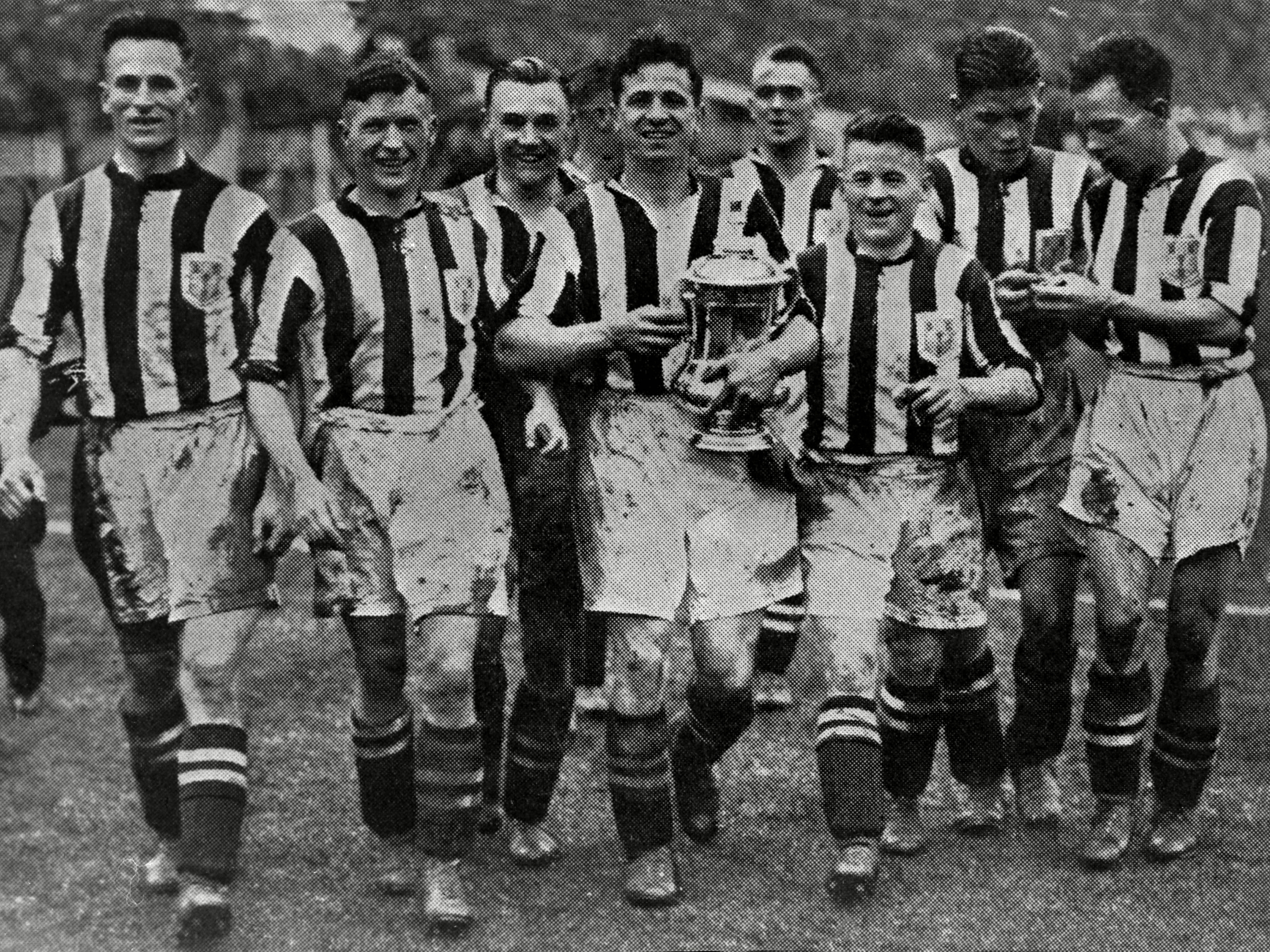
Many of them also played in Albion's eighth FA Cup final which came in 1935, losing 4-2 to Sheffield Wednesday, but we dropped out of the top flight again in 1938.
After World War Two, there was another Albion renaissance and in 1953/54 an exciting new side was christened "Team of the Century" – indeed, it was even suggested by commentators of the day that they be sent out wholesale to represent England at the 1954 World Cup.
In that 1953/54 campaign, Albion won a fourth FA Cup by beating Preston North End 3-2 and finished second in the First Division, missing out on claiming the first top flight double of the 20th century by just four points.
Albion's fame spread as a result, culminating in an invitation to visit the Soviet Union in 1957 when we became the first English club to win a game there. Into a new decade, Albion became cup fighters par excellence.
We won the 1966 League Cup, beating West Ham - Moore, Peters, Hurst and all - 5-3 in the two legged final.
The following season the final was at Wembley and Albion went all to the way before losing 3-2 to QPR under the twin towers.
We returned to Wembley a year later for our 10th FA Cup final, beating Everton 1-0 to claim the trophy for the fifth time in our history and almost defended the trophy the following year, only losing out at the semi-final stage.
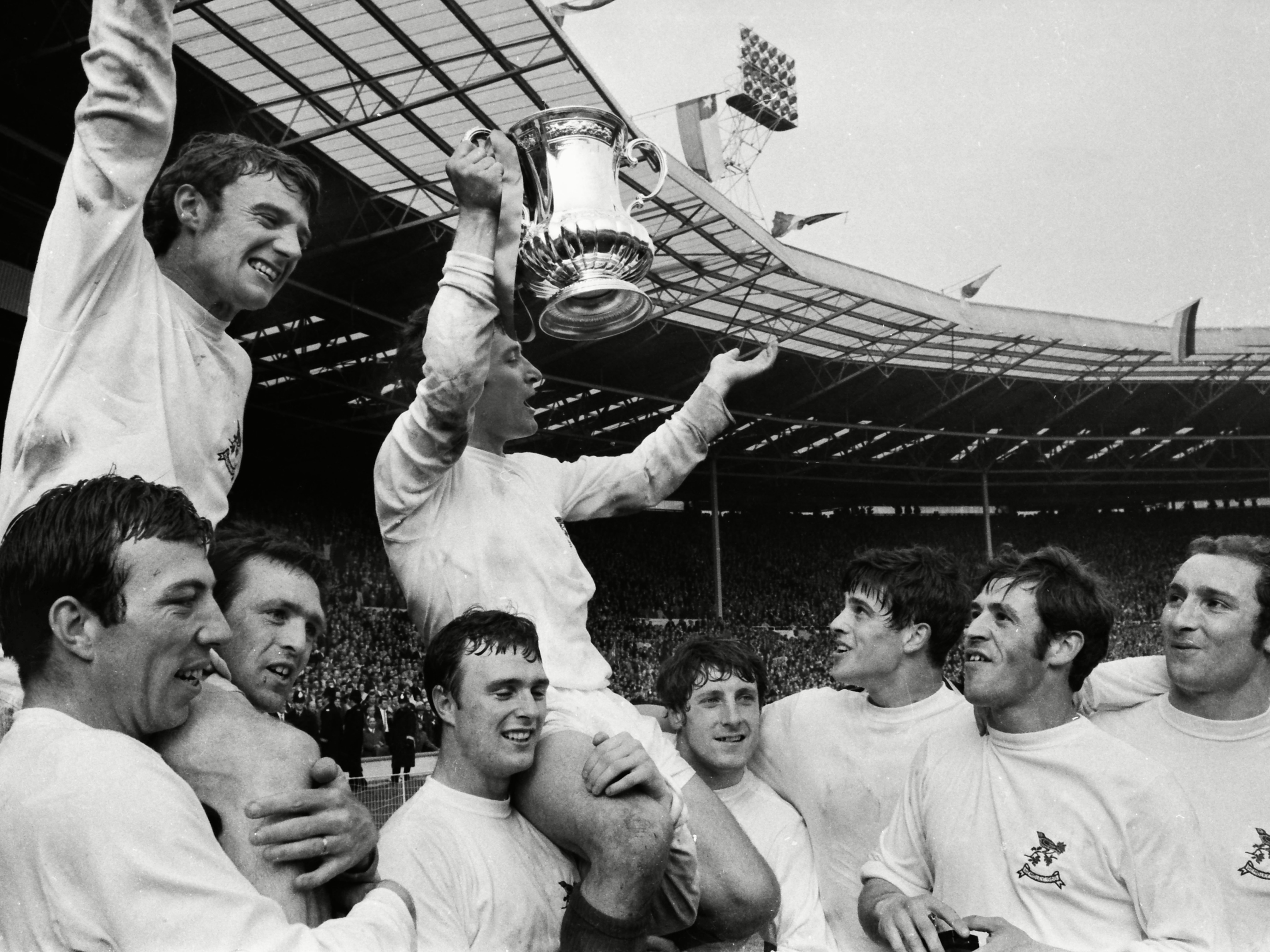
We then lost the League Cup final in 1970, 2-1 to Manchester City. In 1978,
Albion became the first English club to visit China in a landmark trip that has echoed down the years, all the way to the club's present day ownership.
The team spent three weeks in China and Hong Kong, starring in a BBC "World About Us" documentary while they were there.
The 1978/79 season that followed saw Albion finish third in the First Division and reach the quarter-finals of the UEFA Cup, beating Mario Kempes' Valencia on the way.
The use of "The Three Degrees", Cyrille Regis, Brendon Batson and Laurie Cunningham, was hugely significant in the acceptance of black footballers within the English game, giving a lead against racism long before campaigns such as Kick It Out were established.
Having been on the cusp of something special, that team broke up all too quickly and the 1980s proved years of steep decline as the club's fortunes mirrored those of the local economy.
We dropped as low as the third tier for the first time in our history, dragging ourselves from those depths with a 3-0 win over Port Vale at Wembley in the Play-Off final of 1993, the last time we won at the old stadium.
The rest of the 1990s were spent with faces pressed up against the window of the new Premier League as we struggled along in the second tier, but Albion's fortunes turned at the start of the new millennium, reaching the play-offs, only to be beaten by Bolton Wanderers, in 2001.
A year later though and following an explosive end to the season that included the "Battle of Bramall Lane", Albion reeled in Wolves' seemingly unassailable double digit lead to overtake them in the final stretch and claim automatic promotion to the Premier League.
Relegation swiftly followed but Albion bounced straight back and, having been bottom at Christmas 2004, became the first club in Premier League history to survive from there, completing the "Great Escape" on the final day.
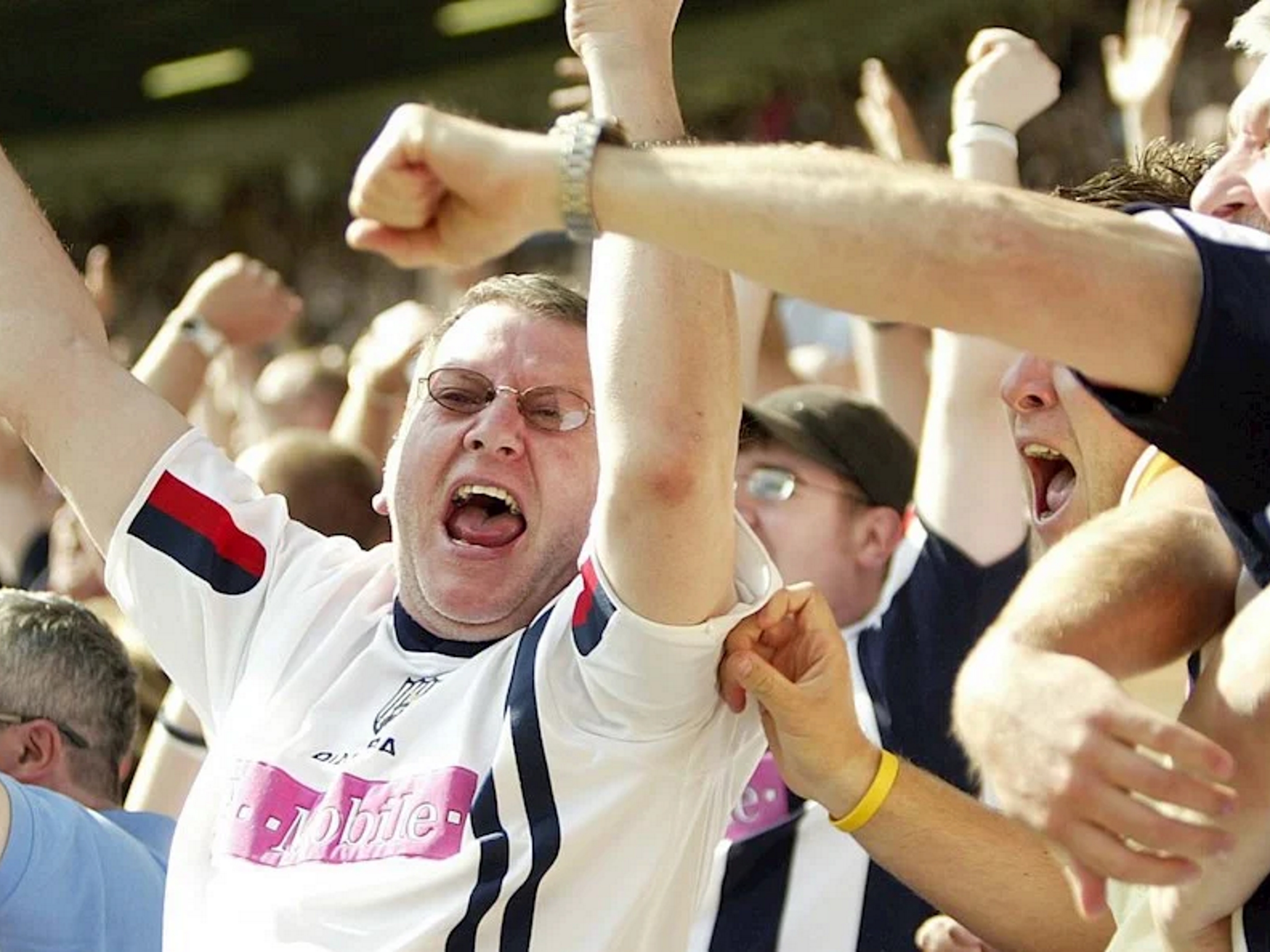
Nonetheless, the first decade of the century saw Albion yo-yoing between the top two divisions before, after winning promotion in 2010, we have since established ourselves in the top flight once again, the upcoming 2017/18 season being our eighth in a row back at the top.
In the summer of 2016, the Club's ownership switched to foreign hands for the first time when the Chinese entrepreneur Guochuan Lai became the controlling shareholder in an agreement which saw owner and chairman Jeremy Peace step down.
Peace agreed to stay on as a consultant for a further year but the chairmanship was taken up by John Williams, who had successfully occupied the role with Blackburn Rovers in the Premier League.
Albion's first season under this new regime saw the Club finish 10th in the Premier League.
The Baggies were relegated a year later with Alan Pardew taking the reigns after Pulis’ departure midway through the season. Darren Moore took caretaker charge for the final six games of the campaign, winning three, drawing two and losing just once to so very nearly keep Albion up.
Albion finished fourth in their first Championship campaign for nine years, missing out to Aston Villa on penalties after a 2-2 aggregate draw.
The Baggies appointed Slaven Bilić as Head Coach in June 2019, with the Croatian leading the Throstles back to the top flight at the first time of asking.
After Bilić's departure in the following winter, Sam Allardyce became Albion's next boss on December 16, 2020 - but he couldn't prevent the club from relegation back down to the second tier and left at the end of that season.
Valérien Ismaël was named Head Coach in the summer of 2021 and he guided the Baggies to their longest ever unbeaten start to a league campaign (10 matches). A tough spell and subsequent slide down the table resulted in his departure, though, and Steve Bruce took charge in February 2022.
The former Blues, Hull and Newcastle boss oversaw an eventual 10th-placed finish when the 2021/22 campaign concluded. However, a difficult start to the following season - where Albion won one of their opening 13 league games - saw Bruce's spell cut short.
The club turned to Carlos Corberán on October 25, 2022. He was initially tasked with moving the Baggies up the table - as they alarmingly fell to the bottom of the Championship following the Spaniard's first match in charge.
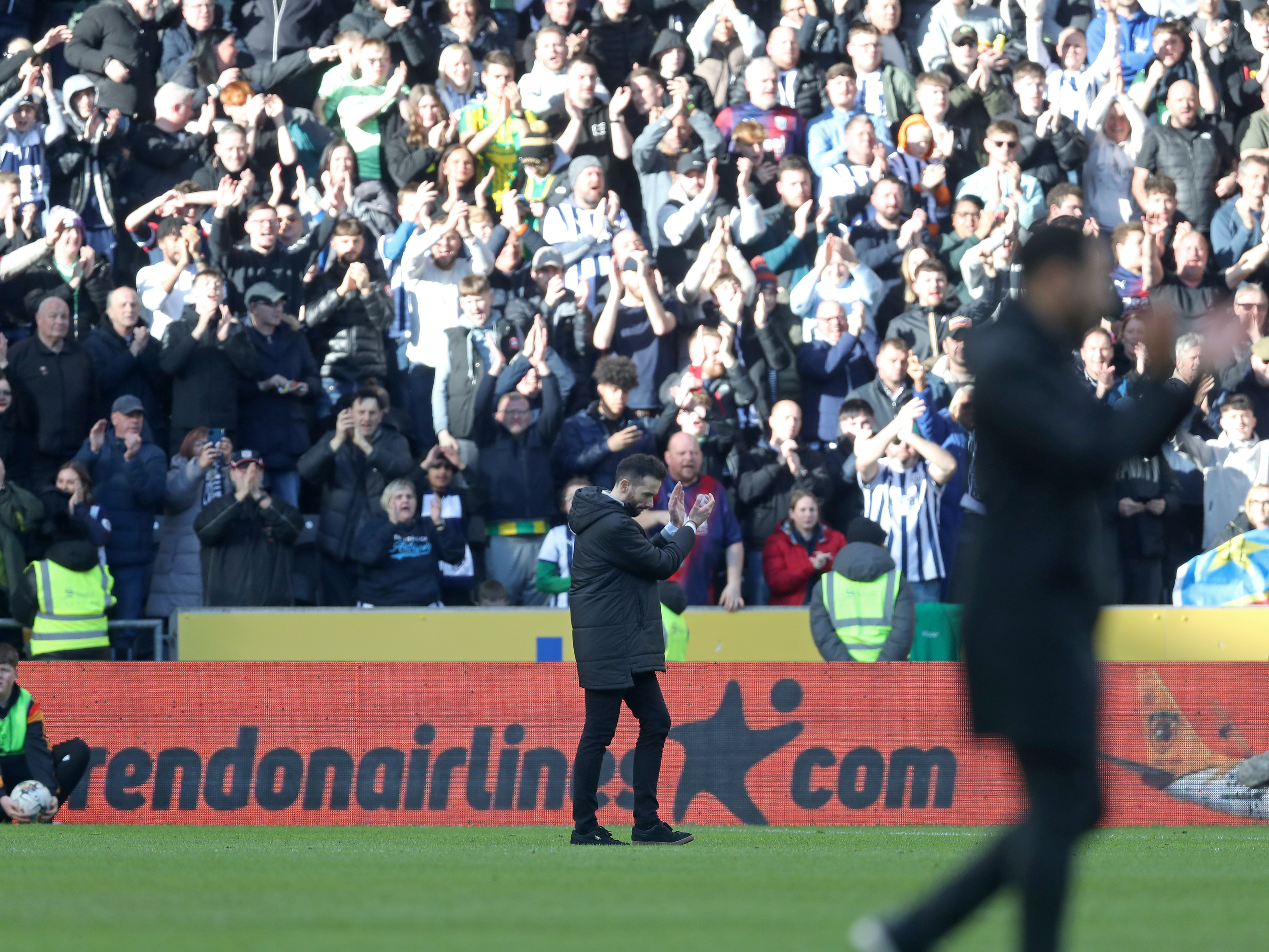
Thankfully, Corberán masterminded a run that saw Albion win 10 of their next 12 league fixtures, and they unexpectedly fought for a play-off place. Though the Baggies fell just short in the 2022/23 term, they did earn a spot in the top six the following season.
In the meantime, there was a change of ownership in February 2024 when Bilkul Football WBA, LLC – a company ultimately owned by Florida-based entrepreneur Shilen Patel and his father Dr Kiran C. Patel – acquired an 87.8% shareholding in West Bromwich Albion Group Limited, the parent company of West Bromwich Albion Football Club.
Despite a strong 2023/24 showing, where Corberán's men finish fifth, Southampton stopped the Baggies returning to the Premier League by beating them over two legs. And on Christmas Eve that year, Carlos left after two enjoyable, memorable years at The Hawthorns, joining his hometown team Valencia.
Former promotion-winner Mowbray returned for a second spell, yet he only stayed three months - from January 2025 to April 2025. The highly-respected manager departed after being unable to secure a play-off spot.
And now Ryan Mason has been handed his first top-job with Albion. The former Spurs player and coach will hope to have a successful beginning to his career in the dugout.